New lessons created on gambling and gaming dangers
- Published
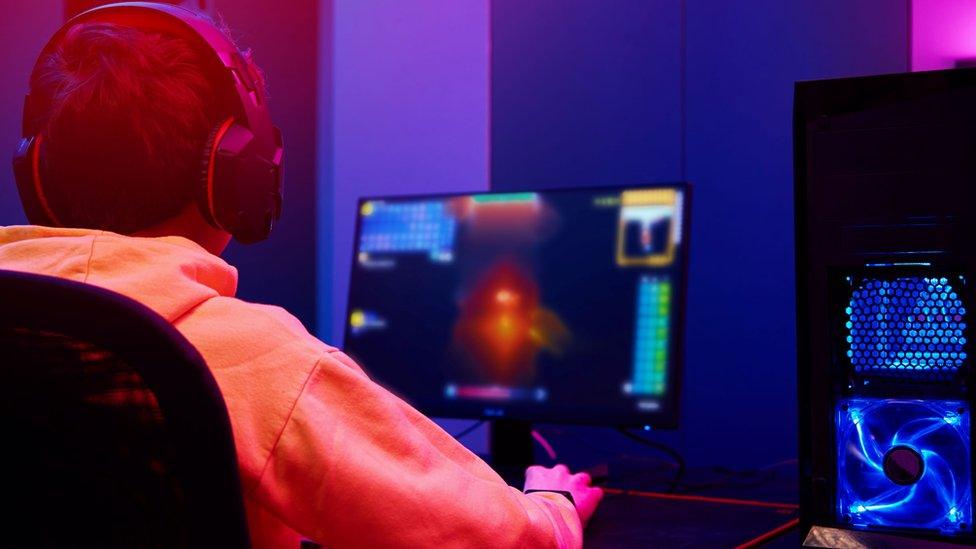
Schools have been urged to use new lessons on gambling and gaming awareness for 11 to 14-year-olds.
They have been put together and published by the Council for the Curriculum, Examinations and Assessment (CCEA).
The lessons cover topics from sports betting and scratch cards to betting in online video games.
Some schools in Northern Ireland already use a series of lessons drawn up by the Gambling with Lives charity.
That includes Dundonald High School, which was one of the first to use the Gambling with Lives programme with 15 and 16-year-old pupils.
The programme includes the story of a young man who started to gamble on arcade machines and also looked at marketing techniques used by betting firms, external.
Teacher Laura Haggan, from Dundonald High, told BBC News NI it was vital that young people were made aware of the harm that could be caused by gambling.
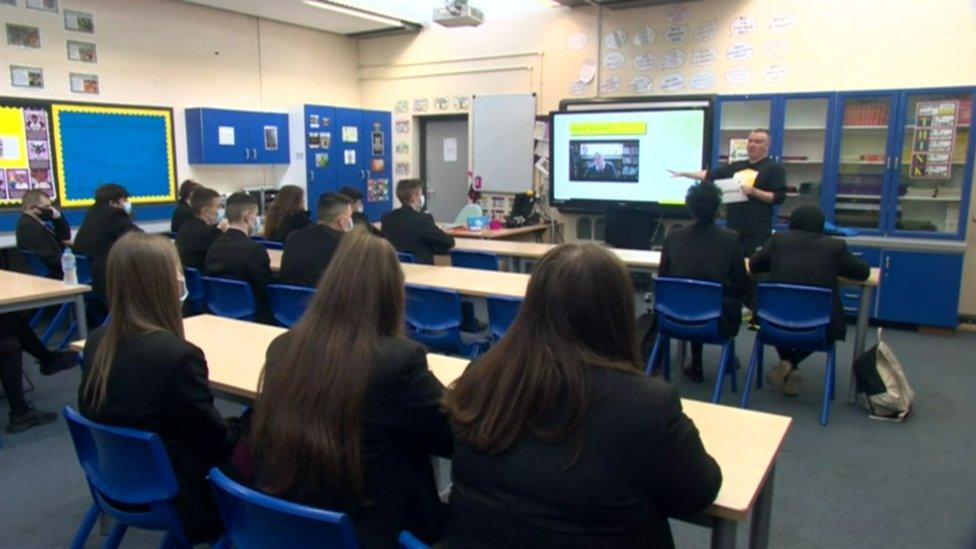
Dundonald High School was one of the first to use the Gambling with Lives programme with 15 and 16-year-old pupils
The new series of CCEA lessons are aimed at 11 to 14-year-old pupils who are studying the Learning for Life and Work subject.
CCEA guidance said young people saw gaming as part of their world that they enjoyed and could benefit from, so teachers should recognise the positives of gaming as well as raising awareness of concerns.
Their five lessons include gaming awareness as well as gambling awareness.
They encourage pupils to discuss how they spend their leisure time and what makes them happy.
But the lessons also cover what they know about gambling, and how gambling and gaming companies use knowledge about brain chemistry and motivation to keep people playing.
They also cover products in online gaming that encourage in-game spending, like loot boxes and skins.
Loot boxes are an in-game feature involving a mystery "box" - sometimes earned through playing a game and sometimes paid for with real money - which can be opened to reveal virtual items, such as weapons or costumes.

But there have been concerns that they are a form of gambling as players cannot see what they have actually bought until after they have paid to open them.
So-called skin-betting is when players use virtual items they have earned or bought in games to gamble.
In May, a report from 18 European consumer groups called loot boxes exploitative and said gamers were being manipulated into spending large sums of money on them.
They have also previously been linked to problem gambling.
Ms Haggan said education around gambling addiction had been overlooked for many years.
"Schools have traditionally focused on addictive substances such as drugs and alcohol rather than addictive behaviours," she told BBC News NI.
"It is vital that young people are made aware of the dangers and harm that can be caused by gambling, more so in Northern Ireland as we have one of the highest rates of gambling participation in the UK.
"Gambling is easily accessible to young people and can be carried out 24/7 due to the widespread use of mobile phones and gaming apps and competition websites."
Ms Haggan said young people often did not even class their participation in certain games, apps and websites as gambling "but that is exactly what it is".
"It is also important to make students aware of the tactics used by advertising companies to entice people to gamble and then to continue to participate - like free bets, promotional emails or texts."
Barry Fennell, of Gambling With Lives in Northern Ireland, also welcomed the new CCEA lessons.
"I know that teachers are up to their eyes and Learning for Life and Work covers a lot of big topics, but gambling is an addiction which should be covered," he told BBC News NI.
"It's the accessibility of it as well that is a big concern. Any resources that raise awareness are very important."
In 2018, a Gambling Commission report published by the National Audit Office estimated that about 55,000 11 to 16-year-olds across the UK were addicted to gambling.
Previous research carried out in Wales also suggested that about 40% of 11 to 16-year-olds had gambled.
In 2019, the NHS in England opened its first dedicated gambling clinic for children and young people.
Related topics
- Published29 December 2021
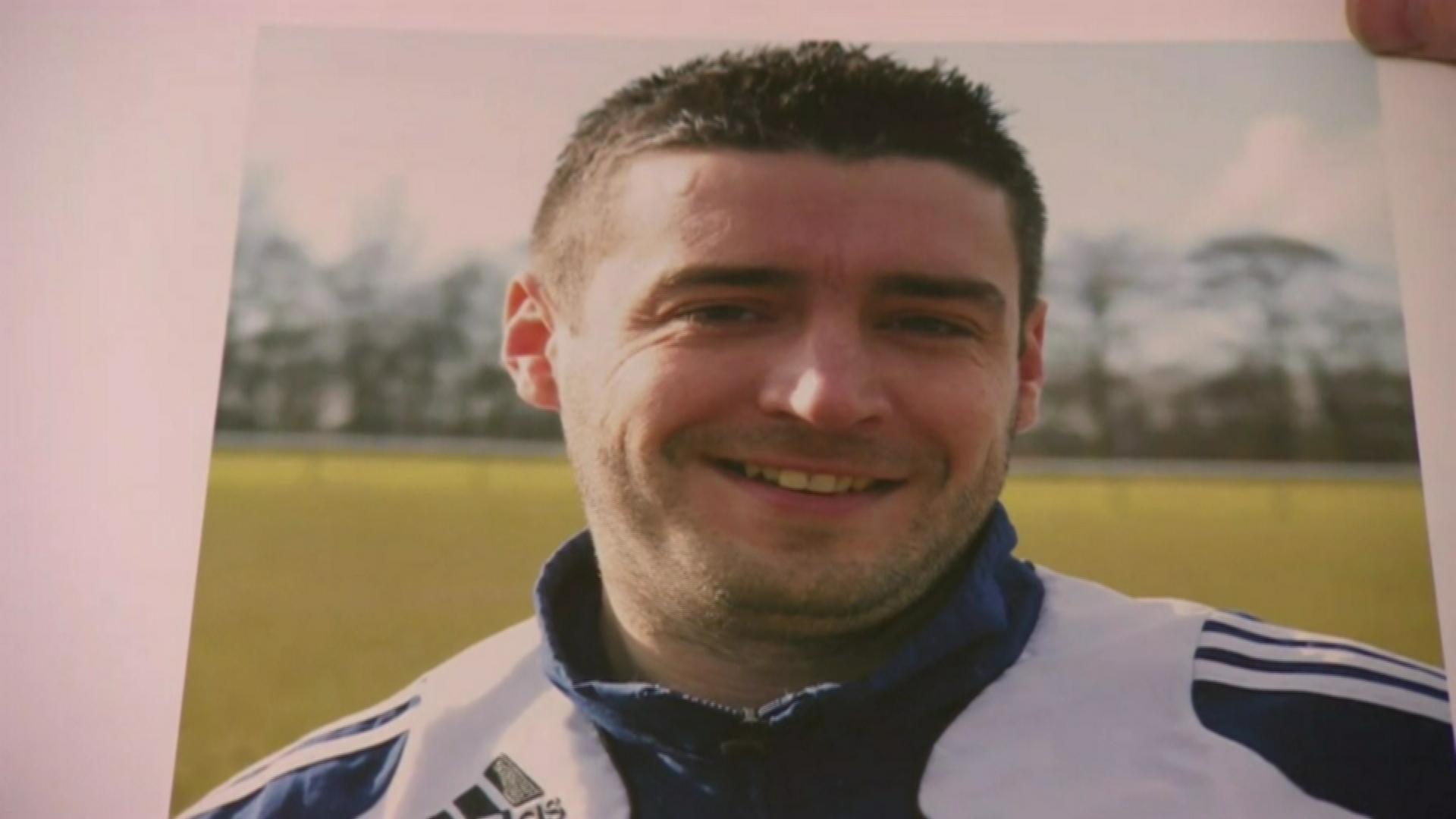
- Published31 May 2022
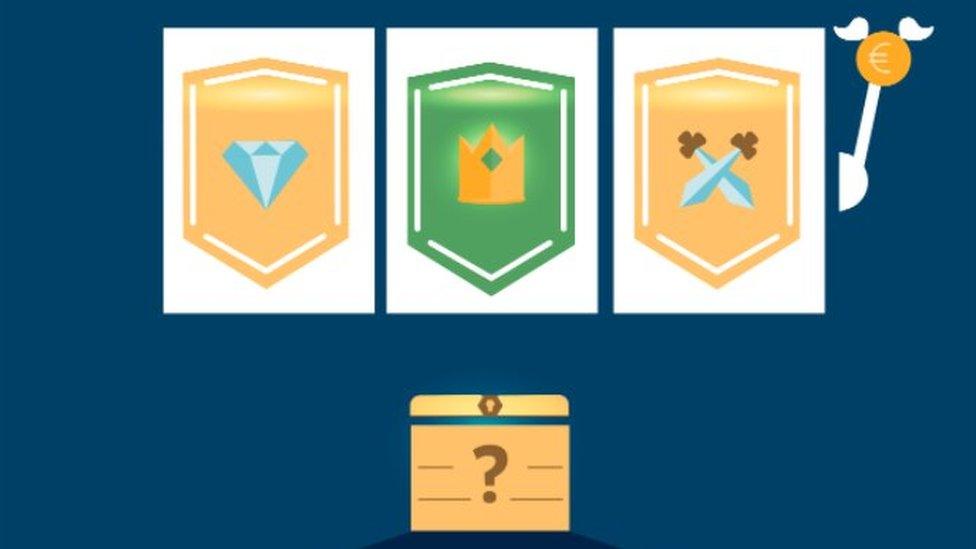
- Published2 April 2021
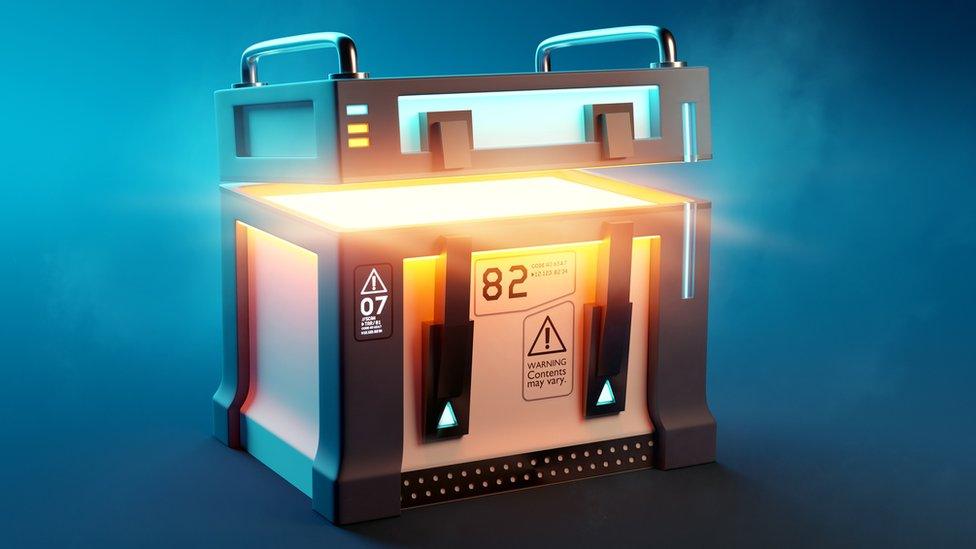
- Published24 June 2019
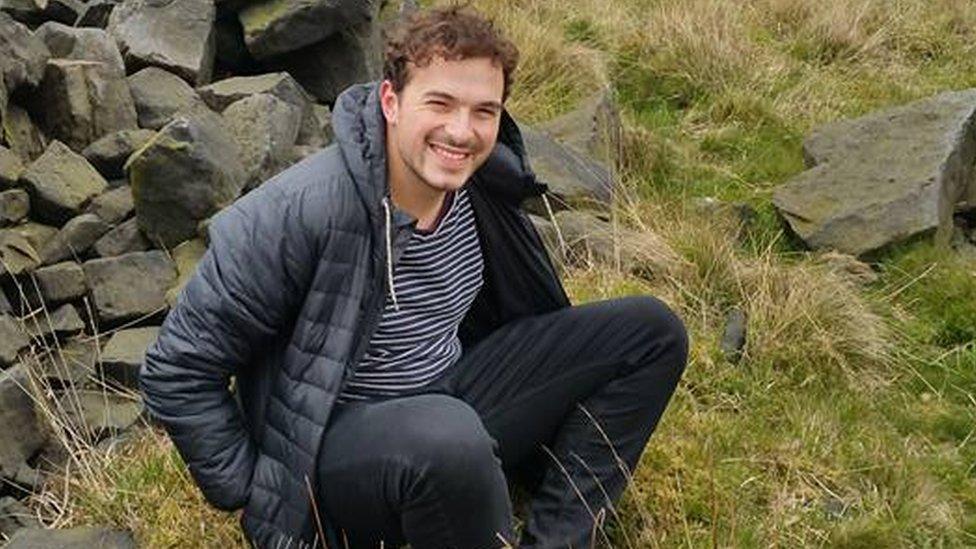
- Published15 October 2019
